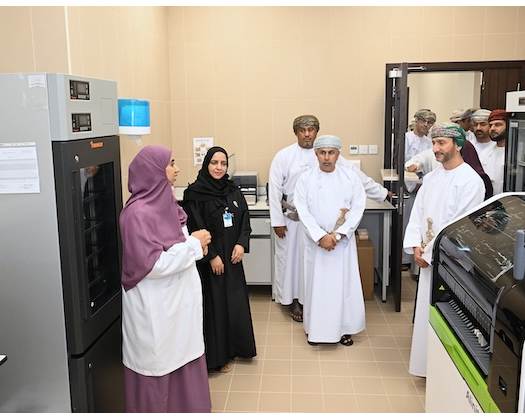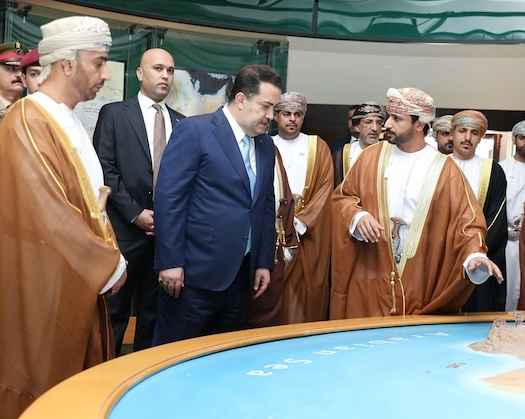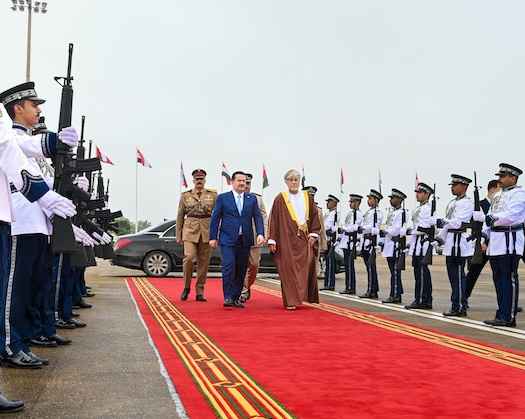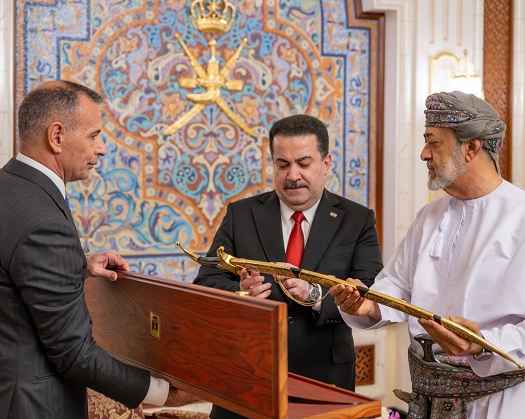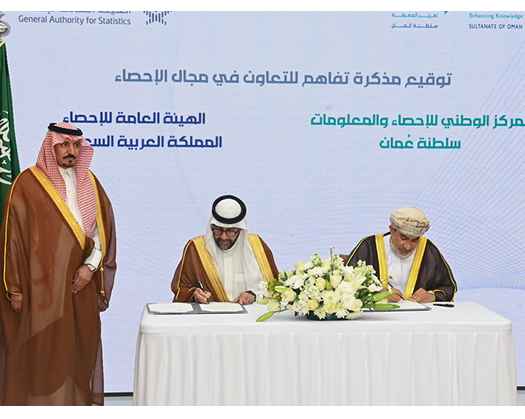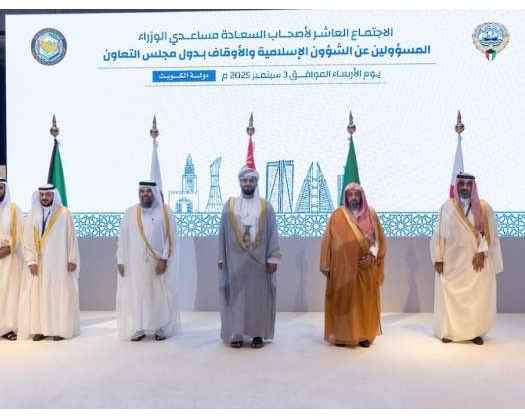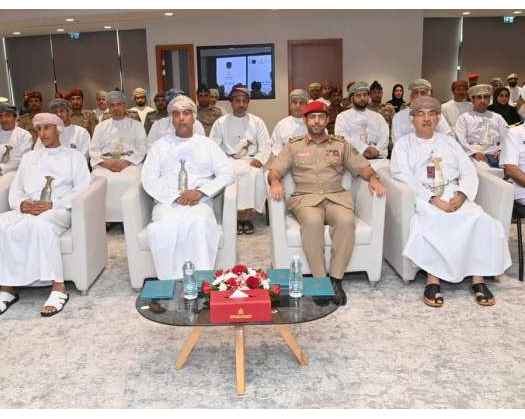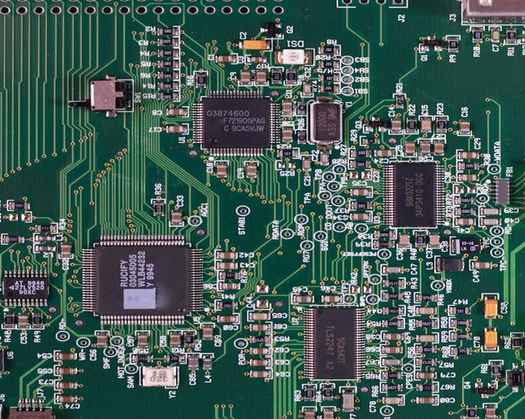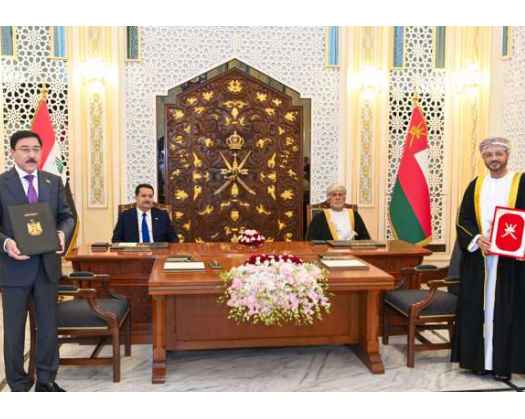Muscat: The Muscat Rehabilitation Centre, a key specialized addiction treatment and rehabilitation facility in Oman, was inaugurated today (Monday) in the Wilayat of Amerat. This inauguration is an important milestone in the national effort to improve the healthcare system and quality of life for people in recovery from addiction. The ceremony was held under the patronage of His Excellency Sayyid Saud bin Hilal Al Busaidi, Governor of Muscat, and H. E. Dr. Hilal Ali Al Sabti, Minister of Health, along with a distinguished group of officials and representatives from several relevant organizations.
Dr. Yousef AlFarsi, Director General of Muscat Health, stated that the facility is a significant milestone in Oman's mental and social healthcare infrastructure. It is intended to provide a complete range of specialized treatment and rehabilitation services for addiction recovery, complete with a safe therapeutic environment and strong programs based on a rigorous scientific approach. These programs are designed to empower people to make positive changes using the most up-to-date worldwide techniques and technology. Treatment follows a stepped strategy, starting with medically monitored detoxification, then transitioning to a short-term rehabilitation phase that emphasizes psychological support and self-stability, and finally, long-term rehabilitation. The long-term phase's ultimate objective is to assist people in rebuilding healthy, stable lives and successfully reintegrate into society. Dr. AlFarsi found that this comprehensive approach offers real possibilities for a return to a normal, healthy life, thus directly contributing to community safety and psychological stability.
Petroleum Development Oman (PDO) and the Al Jisr Foundation emphasized their important roles in establishing the centre. Eng. Mohammed Ali Al Aghbari, PDO's External Affairs, Government Relations, and Communications Manager, described the centre's opening as a significant step forward for mental and behavioral healthcare services in Oman. He expressed gratitude for PDO's collaboration with the Ministry of Health and the Al Jisr Foundation. He acknowledged PDO's dedication to ensuring that the centre meets national standards and provides meaningful social impact in line with Oman Vision 2040. Jumana AlZadjali, Initiatives and Charitable Projects Officer at Al Jisr Foundation, described the centre as a significant milestone in Oman’s addiction treatment and rehabilitation, indicating a progressive move toward a healthier and more unified society. She emphasized that the center exemplifies a comprehensive collaboration among public, private, and civil sectors, working together to serve a critical segment of the population in urgent need of assistance and safe reintegration.
The Muscat Rehabilitation Centre provides a comprehensive range of services, such as medical, psychological, social, physiotherapy, and vocational therapy. Equipped with cutting-edge global technologies and practices in addiction recovery, the center's goal is to minimize the negative effects of addiction while supporting Oman’s broader antisubstance abuse initiatives. PDO funded the project's first phase with OMR 2. 5 million, and Al Jisr Foundation contributed OMR 900,000 for the second phase, bringing the overall cost to OMR 3. 4 million. The Ministry of Health supplied complete outfitting, including furniture, medical devices, and IT equipment.
The creation of this facility reflects the growing need for the Ministry of Health's increased preventive, therapeutic, and rehabilitative services for people dealing with addiction. It also prioritizes aftercare services and assists patients' reintegration into society. This coordinated action by governmental, private, and civil society organizations seeks to reduce stigma and strengthen community support for impacted individuals. Furthermore, the centre deliberately relieves the load on other hospitals and reaffirms Oman's commitment to achieving the goals of Oman Vision 2040, notably the aim of fostering a society with sustainable health and high-quality preventive and curative healthcare services.
The Muscat Rehabilitation Center has five inpatient wards with a total capacity of 130 beds, including 96 for men and 34 for females. These include two detoxification units (20 male and 10 female beds) and two short-term rehabilitation units (66 male and 24 female beds). Additionally, the center houses a forensic medicine department for men, which has 10 beds for compulsory treatment referrals, and integrates services from the Rehabilitation House Center for a seven-month long-term program, offering up to 40 beds. Supporting facilities include a reception, registration, and examination department, outpatient clinics with four consultation rooms, dedicated clinics for psychologists and social workers, a laboratory, pharmacy, security building, a multipurpose hall, vocational training workshops, and recreational areas.

